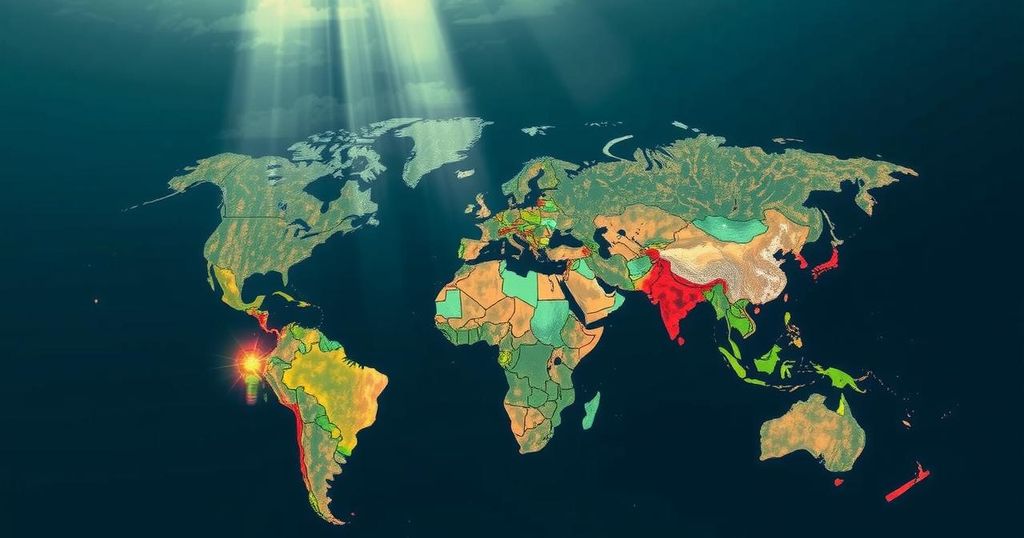Climate change
AFP, AFRICA, ANDREW HARPER, ASIA, AZERBAIJAN, BAKU, CLIMATE, CLIMATE CHANGE, ENVIRONMENTAL POLICY, EUROPE, FILIPPO GRANDI, GENEVA, GLOBAL WARMING, HARPER, INTERNAL DISPLACEMENT MONITORING CENTRE, MYANMAR, PARIS AGREEMENT, SOMALIA, SUDAN, SWITZERLAND, UN, UNITED NATIONS
Jamal Walker
0 Comments
UN Reports Climate Crisis Intensifies Refugee Displacement Challenges
The UN warns that climate change is exacerbating global displacement, with a record 120 million people affected. Extreme weather events, such as floods and droughts, are causing emergencies in already vulnerable regions, and without significant funding for adaptation and resilience, displacement issues are expected to worsen. Climate financing is crucial for supporting refugees and host communities in fragile states.
The United Nations has emphasized the detrimental impact of climate change on global displacement issues, labeling the situation as increasingly “hellish.” According to a recent report from the UN refugee agency, rising temperatures and extreme weather conditions exacerbate the challenges faced by displaced individuals, particularly in regions already afflicted by conflict. The report urges increased investment in mitigating these challenges, as the number of displaced people continues to rise alarmingly. UNHCR Chief Filippo Grandi highlighted that climate-related disasters, such as droughts and floods, are generating emergencies that force more individuals to flee their homes. The data revealed that a staggering 120 million people have been forcibly displaced by conflict, and approximately 220 million have been displaced due to weather-related catastrophes over the past decade. This crisis is particularly poignant as the majority of displaced individuals reside in countries severely affected by climate hazards. Experts predict a significant increase in countries facing extreme climate impacts in the coming years. By 2040, the number of nations confronting severe climate phenomena is anticipated to rise from three to 65, predominantly comprised of those hosting displaced populations. Furthermore, by 2050, refugee settlements are projected to endure greater heat exposure, which may threaten food security due to crop failures and livestock deaths. The UNHCR underscores the urgent need for global leaders, particularly those convened at climate talks such as COP29, to allocate more funding towards climate resilience and adaptation in vulnerable regions. Currently, fragile states receive minimal funding compared to their more stable counterparts, thus perpetuating the cycle of displacement. Without decisive investment in climate adaptation and peace-building efforts, the trend toward increased migration will intensify, making it imperative that proactive measures are taken.
The worsening climate crisis has significant ramifications for global migration patterns, particularly regarding refugees and those forcibly displaced from their homes. As climate-related disasters become more frequent and severe, individuals living in countries already afflicted by conflict and instability face even graver threats to their safety and livelihood. Within this context, global leaders are increasingly recognizing the urgent need to integrate climate strategies with humanitarian support for displaced populations to address the dual challenges of climate vulnerability and displacement more effectively.
In conclusion, the linkage between climate change and displacement is becoming more evident as millions are forced from their homes due to extreme weather conditions and conflict. The UNHCR’s call for increased investment in adaptation measures and support for fragile communities is critical to alleviating the suffering of displaced individuals. Failure to act decisively may compound the existing crises, leading to an even more formidable global refugee situation in the years to come.
Original Source: www.rfi.fr




Post Comment